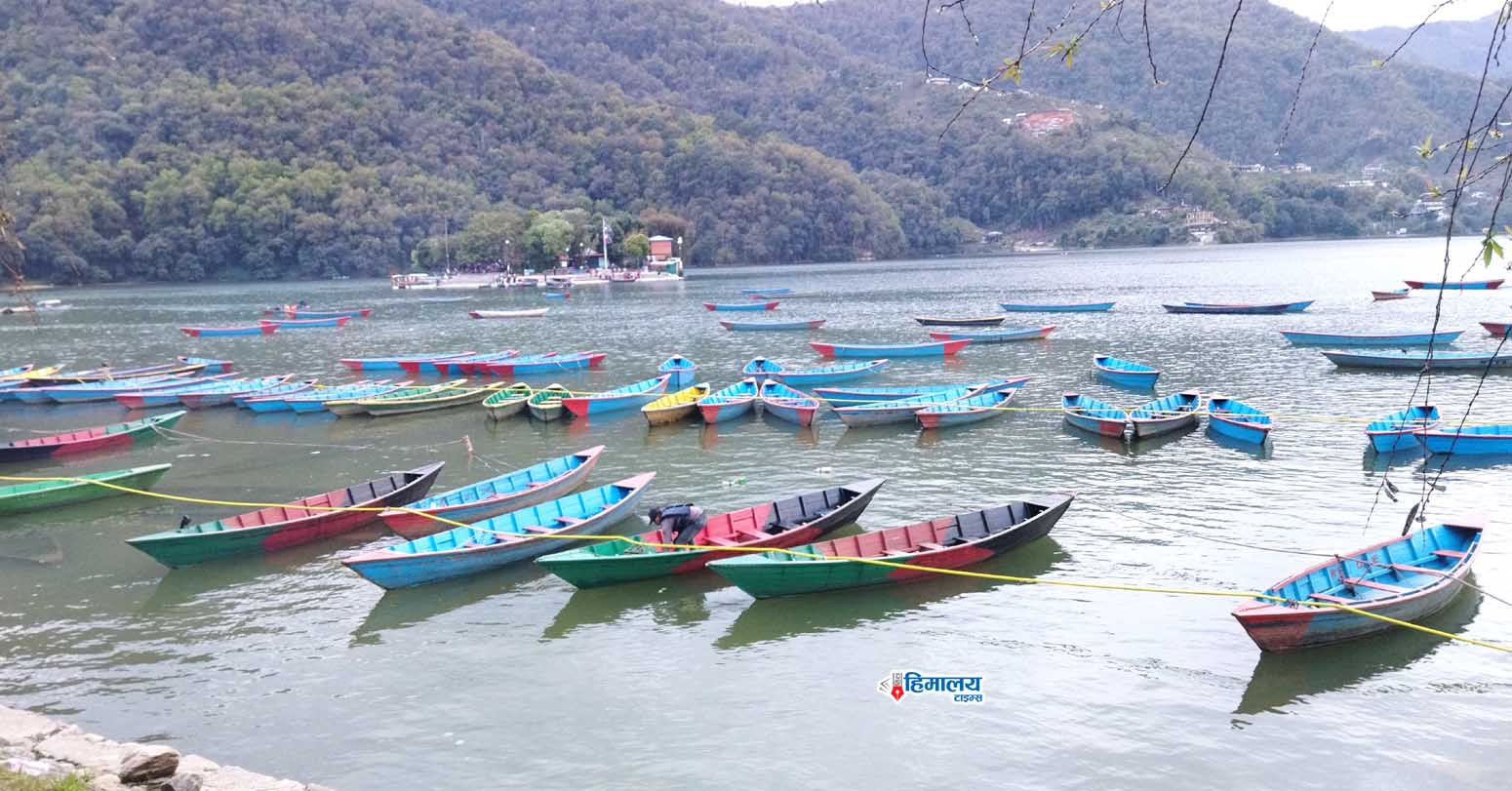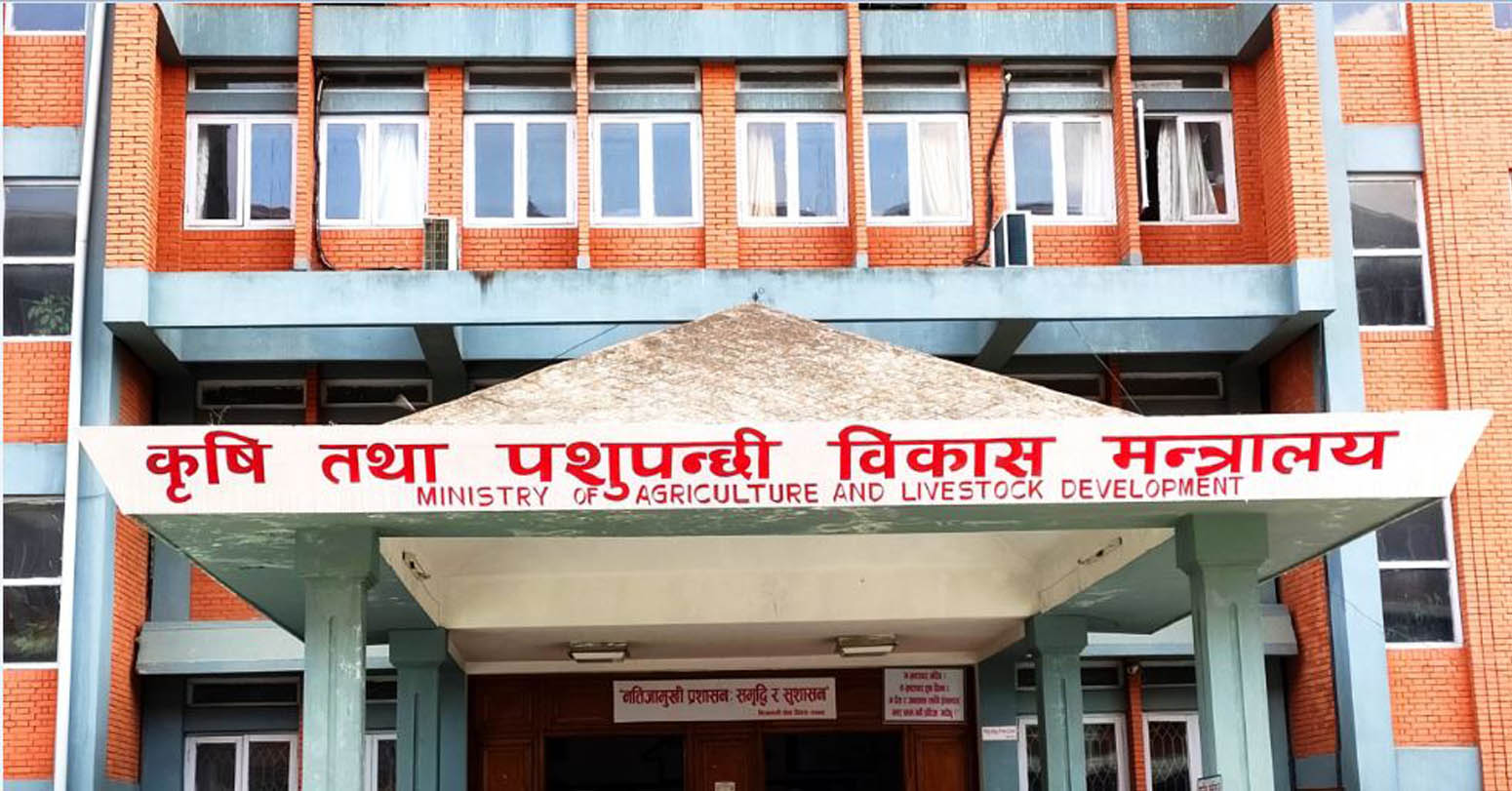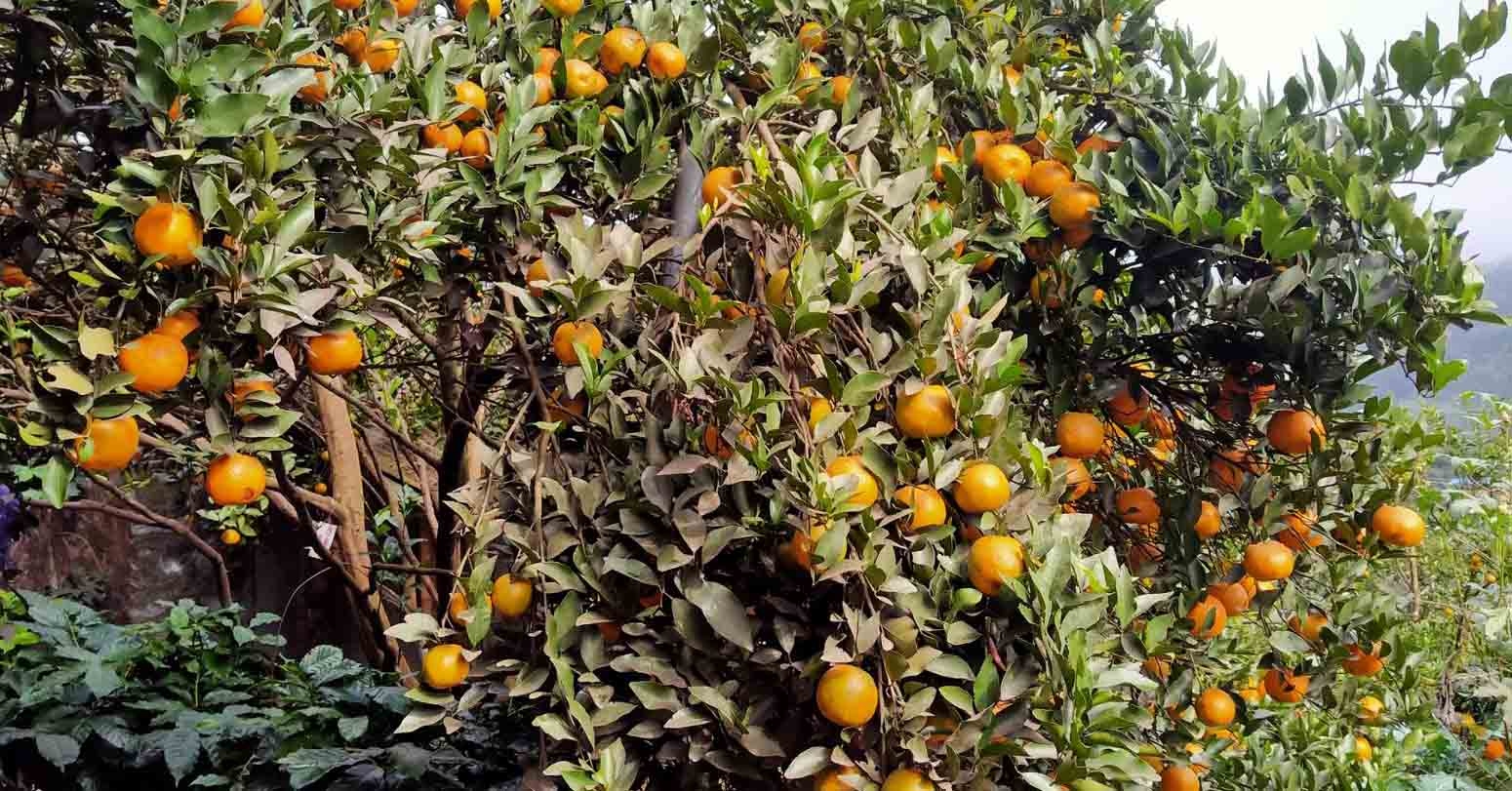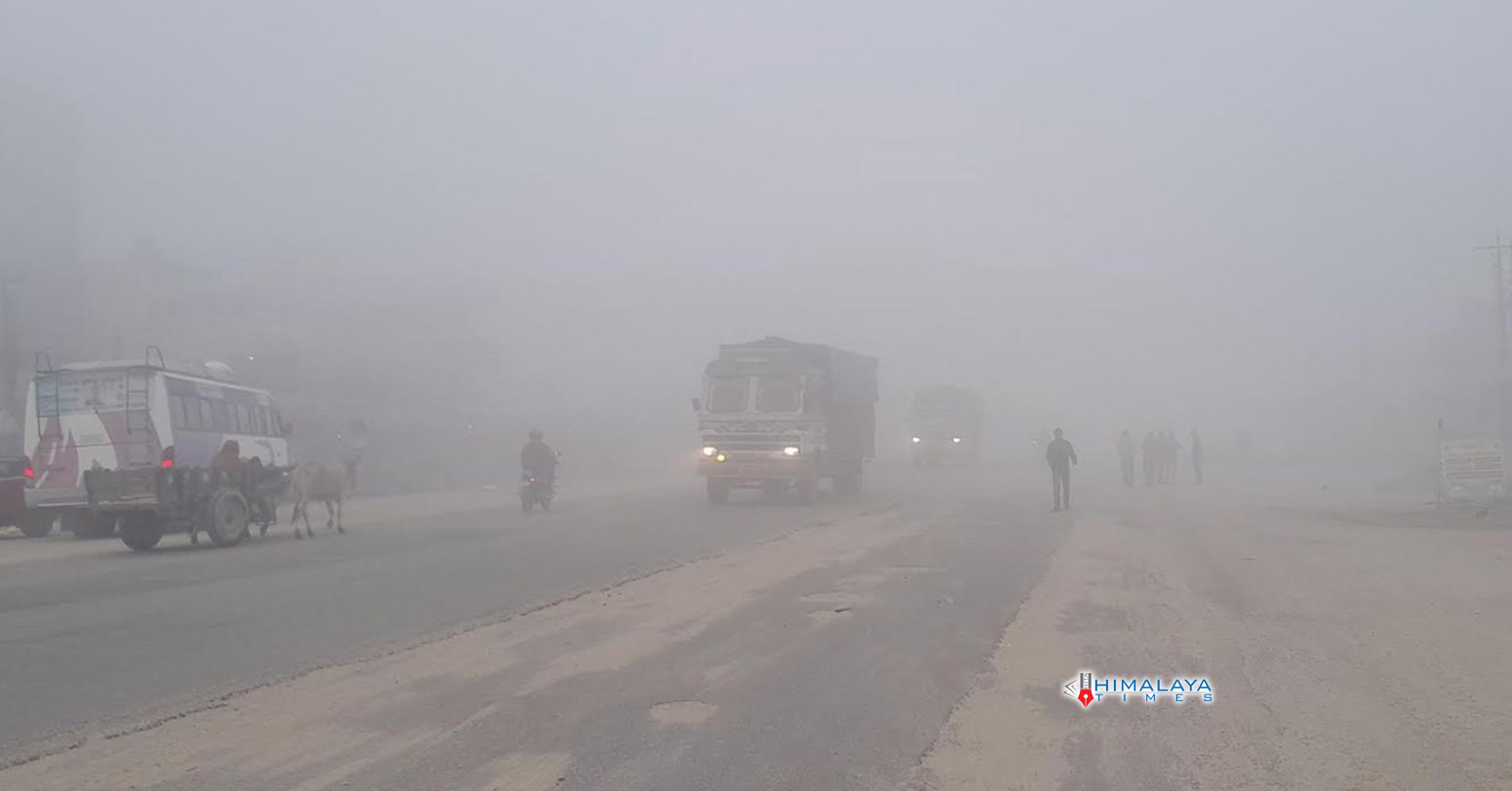
By Man Bdr Bishwakarma, Kalikot, April 2: With the goal of declaring Narharinath Rural Municipality as a climate-resilient municipality from 2022 to 2025, Sahas Nepal has been working across all nine wards of the municipality.
Sahas Nepal, through its Paila Project, successfully conducted a field observation and media interaction program on climate resilience in Ward No. 9 of Narharinath Rural Municipality, Kalikot. The organization presented a progress report and conducted an interaction program with the community and stakeholders regarding climate-friendly agricultural practices and climate resilience.
The program was attended by Narharinath Rural Municipality Vice Chairperson Kamal Kumar Shah, Chief of the District Agricultural Development Office Chandra Bahadur Shahi, Ward No. 9 Chairperson Pradeep Bohora, Ward No. 8 Chairperson Lal Bahadur Bista, members of the local farmers' group, adolescent dialogue participants, and journalists.
Kaushila Nepali, Chairperson of the Social Transformation Farmers’ Group under Sahas Nepal’s Paila Project in Ward No. 9, stated that the project has significantly contributed to climate adaptation, food security, and disaster management. She shared, "There was a time when we couldn’t even introduce ourselves in small programs, but now we can confidently present ourselves. Sahas Nepal has brought an invaluable change in our lives."
She further added, "We have started producing vegetables like onions, tomatoes, potatoes, cabbage, and peas, and we sustain our livelihoods by selling them. Since Sahas Nepal introduced its programs in our village, women have been becoming self-reliant in agriculture."
Similarly, farmer Tara Shahi expressed that Sahas Nepal has provided immense support in the agricultural sector. She highlighted that the Social Transformation Farmers’ Group has generated good income, making the project an inspiration for many.
Since the arrival of Sahas Nepal, rural settlements in Narharinath Rural Municipality have embraced various income-generating agricultural businesses, with the Paila Project playing a crucial role, according to locals.
The organization has been assisting low-income farmers by reaching their homes and providing necessary support. As a result, many farmers have become self-sufficient.
Previously, farmers followed traditional agricultural methods, growing basic vegetables, fruits, rice, and maize. Now, they have started adopting modern techniques and moving toward commercial agriculture. Dila Pariyar from Ward No. 9 of Narharinath Rural Municipality shared, "Earlier, women didn’t even have a single rupee, but after Sahas Nepal encouraged us to engage in agriculture, women have started having money in their pockets."
"People often say farming is not a profession and that one should get a job. However, many who had jobs have now left them to take up farming. This proves that agriculture in Nepal can be a sustainable livelihood," she added. Farmers have benefited from drip irrigation, plastic houses, water collection tanks for unused water, organic fertilizers, advanced farming tools, and weather forecast messages, making agricultural practices easier.
Most women in the group have gained awareness about climate change and its impacts, leading them to focus on preserving local and indigenous crops for sustainable agricultural systems. The project has also introduced adolescent dialogues, which have helped in reducing harmful social practices like untouchability, child marriage, and discontinuation of education, fostering increased engagement among adolescent girls.
Bisan Thapa, Project Coordinator of Sahas Nepal’s Paila Project, emphasized that municipal plans alone are insufficient, which is why the organization is working to connect farmers with commercial agriculture in all nine wards of Narharinath. "There is cultivable land, and anything can grow here, yet we are hesitant to work hard. People in villages still expect the government to provide everything, but we are collaborating with the municipality to change this mindset and encourage commercial interest," Thapa stated.
Similarly, Monitoring Officer Khagendra Bik acknowledged Sahas Nepal’s significant contributions to the agricultural sector in Narharinath. Climate Change Officer Sangita Pal presented the project's progress, focusing on home garden management, organic farming skills and technology, and income-generating activities. She highlighted the importance of climate resilience initiatives and the adoption of climate-friendly technologies.
Vice Chairperson Kamal Kumar Shah acknowledged Sahas Nepal’s efforts in promoting agriculture in Narharinath. He even remarked that the organization has been performing duties that fall under local government responsibilities. He elaborated that various agricultural programs are being conducted in collaboration with Sahas Nepal and the municipality.
Ward No. 9 Chairperson and Municipal Spokesperson Pradeep Bohora stated that agricultural incomes have improved significantly due to various successful programs under the partnership between local government and Sahas Nepal. He noted that wildfires have dried up water sources, affecting the climate, and emphasized the need for conservation efforts. He urged farmers to preserve water sources, build ponds, and actively engage in agriculture.
Sahas Nepal is currently working in Narharinath Rural Municipality of Kalikot and Shivalaya Rural Municipality of Jajarkot. Through the Paila Project, it is working in more than 1,200 households across all nine wards of Narharinath Rural Municipality in Kalikot.
















Middle-aged man spends millions to
Dr. Dharam Raj Upadhyay: Man
Children, Greatest Victims Of Sudan’s
Breathing The Unbreathable Air
Comprehensive Data Protection Law Critically
Gender Differences In Mental Healthcare